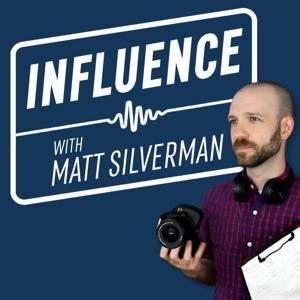Dmitry Ivanovich Khvostov (1757-1835) might be the worst poet who ever lived. Pathologically prolific and delusional dedicated to a craft for which he had no talent, he continued to write and publish his poetry despite the pleadings of friends, loved ones, critics, and the public. In this episode, Jacke talks to author Ilya Vinitsky and translator James H. McGavran III about their book, The Graphomaniac: A Literary-Historical Discussion of Dmitry Khvostov as a Reprieve from Teaching, the Vanity of Worldly Affairs, and Melancholy Reflections Brought On by the Loss of a Front Tooth, Together with the Current Cultural and Political Situation. PLUS Stephanie Sandler (The Freest Speech in Russia: Poetry Unbound, 1989-2022), an expert in Russia's Golden Age of literature and Russian contemporary poetry, stops by to discuss her choice for the last book she will ever read. AND Jacke reveals the #8 Greatest Book of All Time!
Join Jacke on a trip through literary England (signup closing soon)! The History of Literature Podcast Tour is happening in May 2026! Act now to join Jacke and fellow literature fans on an eight-day journey through literary England in partnership with John Shors Travel. Scheduled stops include The Charles Dickens Museum, Dr. Johnson's house, Jane Austen's Bath, Tolkien's Oxford, Shakespeare's Globe Theater, and more. Find out more by emailing [email protected] or [email protected], or by contacting us through our website historyofliterature.com. Or visit the History of Literature Podcast Tour itinerary at John Shors Travel.
Help support the show at patreon.com/literature or historyofliterature.com/donate . The History of Literature Podcast is a member of Lit Hub Radio and the Podglomerate Network. Learn more at thepodglomerate.com/historyofliterature.
Learn more about your ad choices. Visit megaphone.fm/adchoices













































